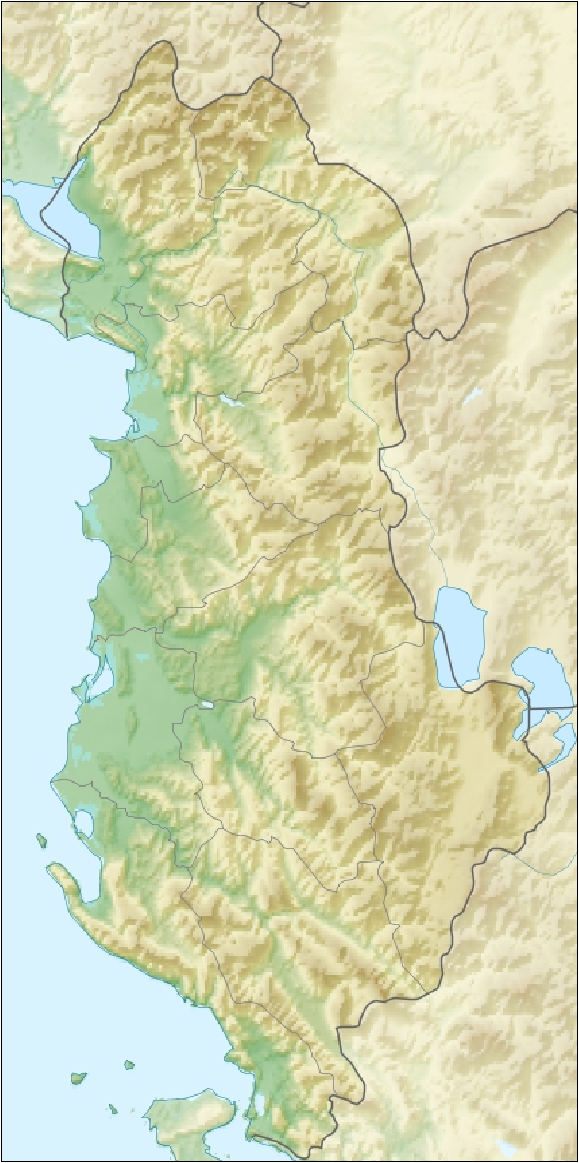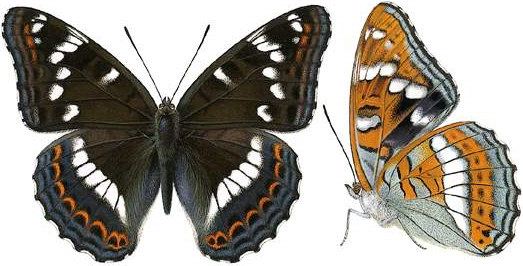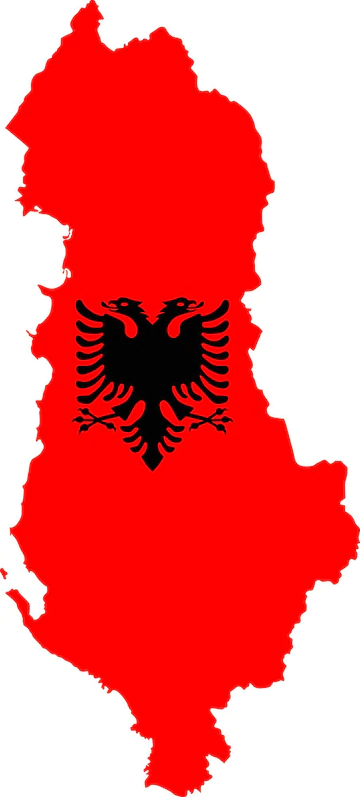|
Potentially present (PP)
Limenitis populi / Poplar Admiral
Admirali i plepit
Nymphalidae - Limenitidinae
Limenitis populi (Linnaeus, 1758). TL: S. Finland.
 
1a. Limenitis populi, distribution map (09.i.2025).  Historical data ; Historical data ;  Additional data from the 2018 update ; Additional data from the 2018 update ;  New observations since the 2018 update. New observations since the 2018 update.
1b. Limenitis populi. ♂ upper- and underside (© Richard Lewington)
Note
On 21.vi.2024, Limenitis populi was observed and photographed nearby the border with North Albania in the Republic of Montenegro (url).
For this reason, L. populi is included as a potential species for Albania, likely at the limit of its southern distribution.
Description
♂♂
Large butterfly. Fw: 35-40 mm.
Ups: dark grey-brown gc with white spots in pd areas and in the cell, often reduced and sometimes absent (forma tremulae Esper, 1800).
Upf: faint orange-red and black sm spots.
Uph: orange-red and black sm spots.
Uns: orange gc, white and grey-blue markings better defined.
Unh: single series of small black postdiscal spots.
♀♀
Larger size.
Ups: white markings much larger.
Uph: prominent white band.
Uns: larger markings.
Similar species
Life cycle
Adults: short flight time in a single generation from June (at lower elevations) to July (at higher elevations).
Egg: short stage.
Caterpillar: overwintering in a hibernaculum as L3 larva.
Pupa: short stage.
Habitat
At lower elevation, Limenitis populi inhabits large, light deciduous forests with large stocks of Populus tremula. At higher elevation, L. populi also occurs in mixed, open forests up to 1.500 m a.s.l.
Considerable spatial requirement, the population density often seems low but due to its rather secretive lifestyle high in the trees, the species is probably underdetected.
Foodplants
Caterpillars feed mainly on Populus tremula, also mentioned are P. alba and P. nigra
Butterflies feed on liquids from rotten material and excrements.
Distribution
Albania: never recorded.
Balkan: AL - BG - BIH - GR - HR - NMK - MNE - RKS - RO - SLO - SRB
Europe: IB - IT - ALP - BAL - NWE - UK - SCA - EEU
Not present in Asia Minor, dubious for Transcaucasia and Caucasus. Present further east.
Conservation status
In large parts of its range, Limenitis populi is declining through intensive forest management where P. tremula is systematically removed but not endangered. If the species were found in Albania it would be located at the southern limit of its distribution range in the Balkan peninsula.
Albanian Red List: na.
IUCN Red List, category at the Mediterranean level: LC.
Useful links
Bink 2015
Pyrgus.de
Lepiforum
Euroleps
|
 xx
xx 


 Historical data ;
Historical data ;  Additional data from the 2018 update ;
Additional data from the 2018 update ;  New observations since the 2018 update.
New observations since the 2018 update.